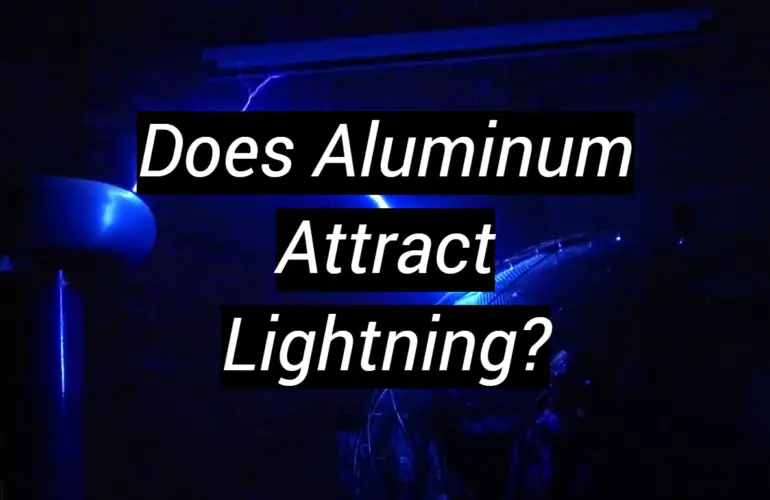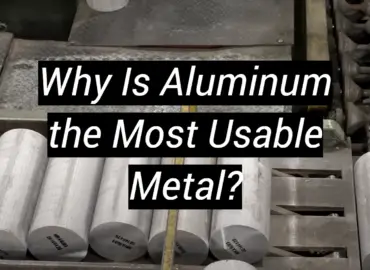Have you ever seen a bolt of lightning course through the sky and wondered what makes aluminum so special that it attracts electricity? The answer to this is far more complex than just one simple explanation. What we know is that lightning strikes when charged particles within thunderclouds create electrical charges, which are transferred to the ground in massive fluxes of energy. But how does aluminum come into play? Our blog post today will explore exactly how aluminum can act as an attractant for lightning and what its ability to do this tells us about our environment. We’ll examine the benefits of harnessing naturally occurring electricity, as well as some of the potential risks associated with attempting such an endeavor. Read on to learn more about strike lightning and its relationship with aluminum!
How Does Lightning Strike?
Lightning is a powerful natural phenomenon that occurs when electrical charges in the atmosphere discharge. It is essentially an instantaneous, high-voltage electric current traveling between two points. This electric current can move through air, ground, and water and produces bright flashes of light (thunderbolts) along with loud rumbling noises (thunder).
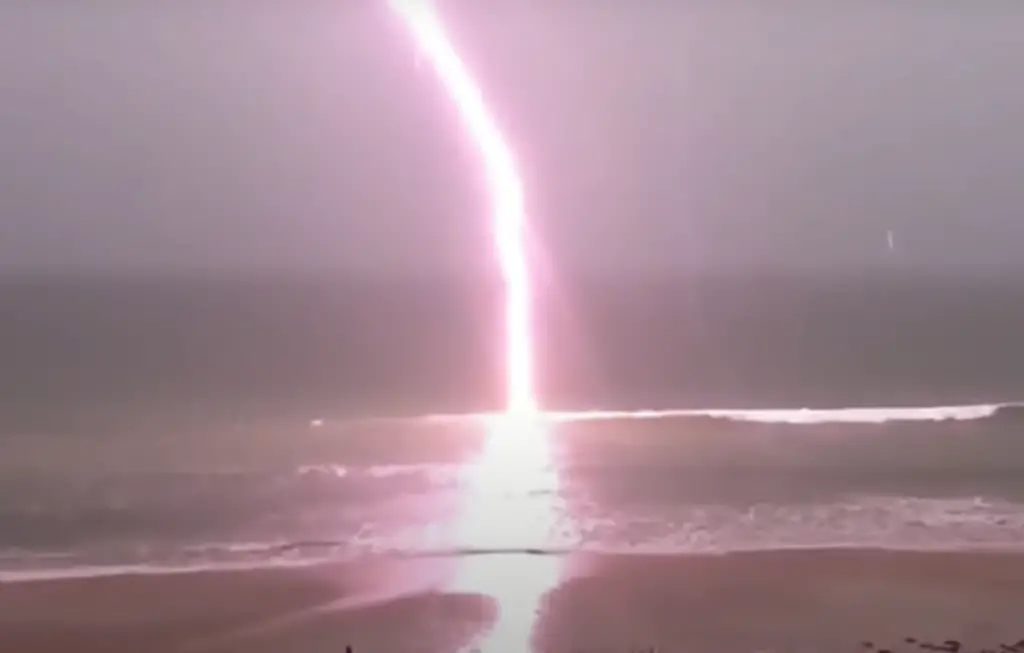
When lightning strikes the ground, it seeks out something to connect to—typically metal objects such as towers or buildings—to complete its path. When this happens, you are seeing electricity “grounding” itself by traveling from the clouds to a point on Earth. The power of these currents can be incredibly destructive and cause severe damage to property, infrastructure and even people if they get too close.
The exact science of how lightning forms is still being studied, but it’s thought that the buildup of charged particles within a cloud causes an imbalance in electric fields. As these particles separate with positive and negative charges, electrons are transferred between clouds or from a cloud to the ground. This intense concentration of charged particles then creates incredibly powerful electrical currents—what we call lightning strikes! [1]
It’s important to remember that lightning can strike anywhere at any time and be potentially deadly. It’s best to stay indoors in a safe building during thunderstorms and avoid any metal objects outside like fences, swing sets, or power lines. If you do find yourself outdoors during a storm, make sure to get into a low-lying area or crouch down below any tall objects. Taking these precautions can help keep you safe and sound!
7 Myths About Lightning Strikes Worth Dispelling Now
Understanding the truth behind these common myths about lightning strikes can help you stay safe during a thunderstorm. So let’s dispel them together:
Myth 1: Lightning only strikes tall objects
This is one of the most widely-believed myths, but it could not be further from the truth. While it’s true that taller objects are more likely to be struck by lightning due to their greater surface area and higher altitude, lightning can strike any object or person regardless of size, shape, or height. It’s important for people to know that they don’t need to take shelter in a tall building when there’s a thunderstorm; rather, they should seek shelter as soon as possible in an enclosed building with proper wiring and grounding.
Myth 2: Rubber Soles Can Protect You From Being Struck by Lightning
Unfortunately, this is another myth that has been around for a while. While rubber-soled shoes may help insulate you from the ground and reduce the risk of being struck by lightning, they won’t protect you completely.
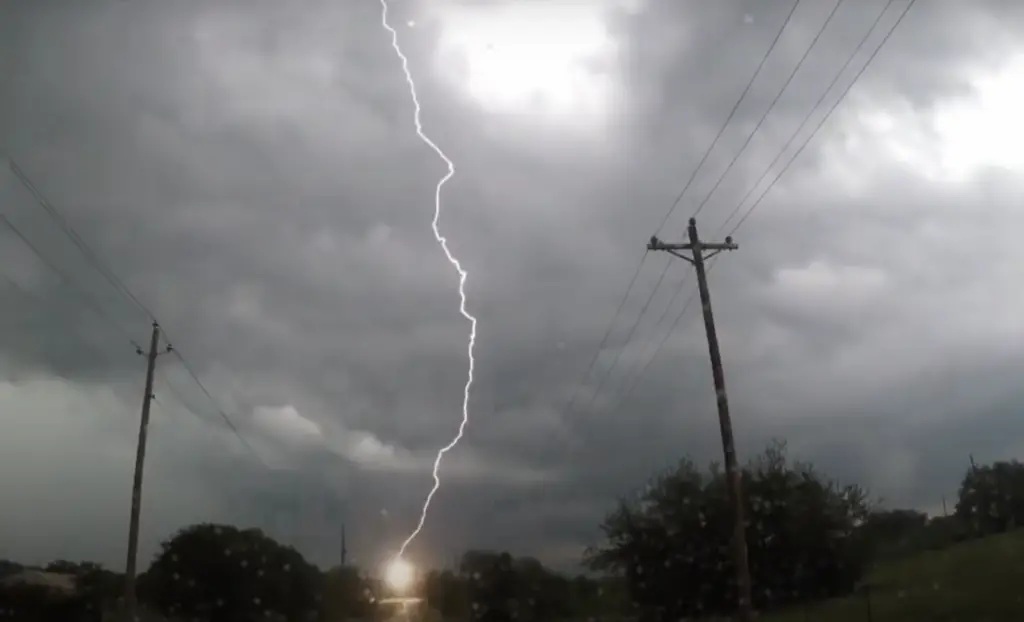
The best way to stay safe during a thunderstorm is to find proper shelter in an enclosed building with wiring and grounding that can act as a Faraday shield to stop electrical currents from entering your body.
Myth 3: You Can Outrun A Lightning Strike
It’s impossible to outrun a lightning strike; it moves at speeds upwards of 220,000 miles per second! If you see or hear signs of an approaching storm, take cover immediately in an enclosed building. Running is dangerous as it increases your risk of being struck by lightning, as well as the chance that a lightning bolt will hit the ground nearby and then jump to you.
Myth 4: If It’s Not Raining, You’re Safe From Lightning Strikes.
This could not be further from the truth; in fact, some of the most severe thunderstorms occur when there is no rain or even clouds!
Myth 5: Lighting Never Strikes The Same Place Twice
This myth has been disproved many times over–lightning does strike the same place twice! In fact, it’s not uncommon for lightning to strike the same place multiple times in one storm. This is why it’s important to avoid tall objects that have already been struck by lightning and seek shelter instead.
Myth 6: You’ll Be Safe Under A Tree During A Thunderstorm.
This is a dangerous myth that can lead to serious injury or death. Trees are tall objects with greater surface area, which makes them more likely to be struck by lightning than any other object in the vicinity. Furthermore, if lightning does strike the tree, it can jump from the tree and strike you as well–so avoid trees during thunderstorms and seek shelter indoors instead.
Myth 7: Lightning Cannot Strike Indoors
Lightning can indeed strike indoors; however, this is less common due to the presence of wiring and grounding that acts as a Faraday shield to stop electrical currents from entering your home or building. It’s important for people to make sure their homes are properly wired and grounded to reduce the risk of a lightning strike. [2]
Does Aluminum Attract Lightning?
Aluminum does not attract lightning and there is no scientific evidence to support this notion. The reason why people sometimes think aluminum attracts lightning is because it is a metal conductor, and conducting materials are known to be affected by electric fields that occur during a thunderstorm. However, the electrical field produced by lightning will not be impacted by the presence of aluminum or other metals.

In fact, having any kind of metal roofing material on your home can actually help protect it from being hit by lightning since these materials provide an extra layer of insulation beneath the roofing material that can help block out some of the electricity generated during a storm. Additionally, making sure any exposed metallic components are well insulated and not in contact with the ground is also important. [3]
3 Key Reasons For Aluminum to Attract Lightning
Here are three key reasons why lightning is attracted to aluminum:
- Aluminum is much more conductive than other materials. It has a lower resistance to electricity flow compared to other metals, meaning it allows electricity to move through it much faster than its counterparts. This makes it an ideal material for attracting and channeling lightning strikes. [4]
- The negative electrons around aluminum are very effective in attracting positive charges from the atmosphere during a thunderstorm; this creates an imbalance which encourages the buildup of static electricity and increases the likelihood of a lightning strike occurring near or directly on top of the material itself.
- Aluminum’s lightweight nature also plays a role in its attractiveness to lightning. Since it is not as heavy as other metals, aluminum tends to be more susceptible to the effects of wind which causes static electricity buildup and increases the chances of lightning striking the material.
By understanding why aluminum attracts lightning, you can take steps to protect your property from potential damage caused by these strikes. For example, installing lightning rods on buildings made out of aluminum can help disperse the energy and reduce any potential harm caused by a strike. Additionally, making sure electrical systems are properly grounded can also prevent damage from occurring due to a direct lightning strike. With these tips in mind, you can stay safe and enjoy peace of mind during thunderstorms!
What Factors Determine the Electrical Conductivity of Aluminum?
Aluminum is an excellent conductor of electricity due to its chemical structure. The electrical conductivity of aluminum is determined by several factors, including the purity of the metal, temperature, and alloy composition.
The purity level of aluminum has a direct impact on its electrical conductivity. A higher purity results in better electrical conduction.
Temperature plays another important role in determining the electrical conductivity of aluminum since it varies with temperature changes. As temperature increases, so does the resistance offered by metal which reduces the rate of current flow through it and thus affects the overall electrical conductivity of the material.
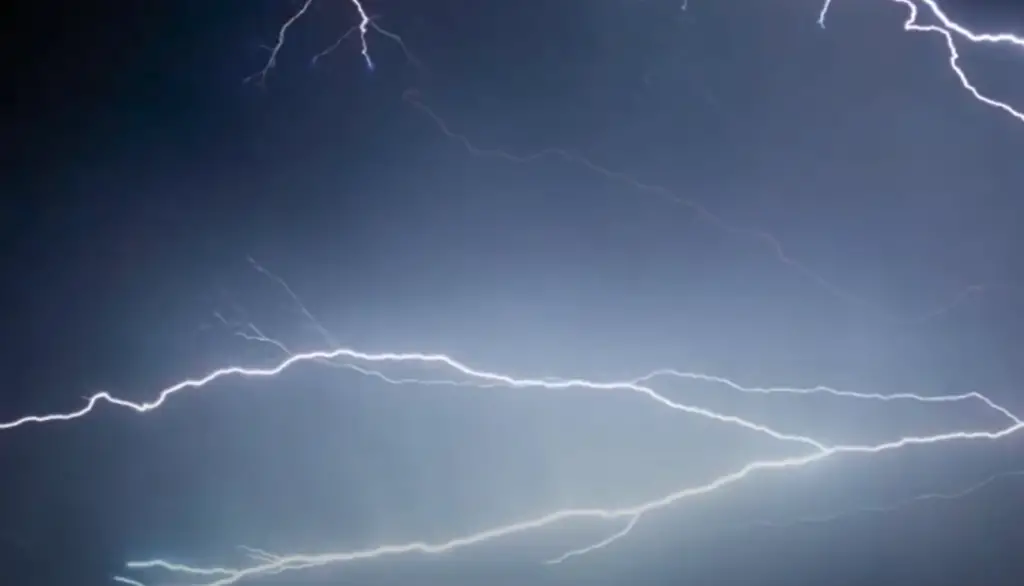
The alloy composition of aluminum is another factor that influences its electrical conductivity.
Alloy blends with higher levels of copper, manganese or nickel can be more effective in terms of electrical conductivity compared to those with lower levels. [5]Finally, the size and shape of aluminum also affects its electrical conductivity. Larger pieces tend to be less efficient in transmitting current due to their larger surface area which provides more resistance to the flow of electricity. On the other hand, thinner sections provide less resistance hence they are more suitable for applications where electrical conduction is a key requirement.
Top 10 Things to Avoid When Lightning Strikes
Staying safe during a thunderstorm requires common sense and preparation. By avoiding these 10 things when lightning strikes, you can keep yourself and those around you safe from harm:
- Avoid standing in open spaces – Lightning is attracted to the tallest object in an area, so it’s important to stay away from open areas like fields and hills during a thunderstorm.
- Do not take shelter under trees – While trees can provide some protection against rain, they are not safe places to take shelter when lightning strikes as they attract lightning!
- Avoid metal objects – Metal objects such as bicycles, golf clubs, or lawn chairs should be avoided during a thunderstorm since they can conduct electricity if struck by lightning.
- Stay away from windows – Windows can be dangerous during lightning storms because glass is easily shattered by the force of a lightning strike and flying debris can cause injury.
- Avoid using electronics – Electronics are a common source of lightning strikes, so it’s important to unplug and turn off any electronic devices during a thunderstorm. Make sure that your home is equipped with surge protectors to prevent electrical surges caused by lightning.
- Don’t bathe or shower – Taking a bath or shower during a thunderstorm is not advised as the plumbing and fixtures can act as conduits for electricity if lightning strikes the house.
- Don’t use corded phones – Corded phones are also hazardous during lightning storms since they can be used to conduct electricity to other parts of the home. It’s best to stick with wireless devices, such as cell phones and walkie-talkies, during thunderstorms.
- Keep away from bodies of water – Water conducts electricity very easily, so it’s important to stay away from open bodies of water, like pools and ponds, when lightning strikes.
- Avoid standing near tall objects – Tall objects such as buildings, towers, and even trees can be struck by lightning during a thunderstorm. Avoid standing near these objects when possible to avoid injury from flying debris.
- Stay inside a building or vehicle – If you are caught in a thunderstorm, your best bet is to take shelter inside a building or vehicle. Make sure the windows are closed and stay away from metal objects like door frames or cupboards. [6]
Remember that rubber-soled shoes and umbrellas won’t protect you from lightning strikes!
FAQs
Is aluminum a good lightning conductor?
Yes, aluminum is a good lightning conductor. It has a low electrical resistance and is able to dissipate the large amounts of energy associated with a lightning strike. It also has excellent corrosion resistance which helps in its ability to withstand lightning strikes without sustaining damage. Other materials such as copper and steel can also be used for conducting lightning, however they are less effective than aluminum due to their higher electrical resistances. Additionally, aluminum does not require additional protection measures such as grounding or surge protection that other materials may need. Therefore, when considering the best material for conducting lightning on structures, aluminum is an excellent choice due to its low cost and effectiveness.
Is copper or aluminum better for lightning protection?
The answer to this question depends on a variety of factors. Copper is highly conductive and has good corrosion resistance, which makes it an ideal choice for lightning protection systems. However, aluminum is also used because it is much less expensive and easier to work with than copper. Additionally, some experts suggest that aluminum may provide better shielding against electromagnetic radiation than copper. Therefore, when choosing between the two materials for lightning protection systems, it will depend on the specific application and what type of protection is desired. In many cases, a combination of both will provide the best overall result.
Why is aluminum not used for earthing?
Aluminum is not used for earthing because it corrodes easily and can be unreliable over time. Additionally, the material does not have a high enough melting point to be suitable for use in many high-voltage applications.

Finally, aluminum has a tendency to expand and contract when exposed to temperature changes, which could potentially cause loose connections in the earthing system. For these reasons, aluminum is generally not recommended for use in earthing systems. Copper or steel are usually preferred due to their superior conductivity and greater durability.
What material can withstand lightning?
The most effective way to protect a building or structure from lightning is to install lightning rods. Lightning rods are made of metal, typically copper or aluminum, and are designed to safely conduct the electrical current of a lightning strike away from the structure and into the ground. Other materials such as fiberglass, wood, concrete, and rubber are poor conductors of electricity and therefore can’t be used for lightning protection. To ensure proper protection it is important that all parts of the system are grounded correctly. Additionally, any material that has been weakened by fire or water damage should not be used for lightning protection as it may not function properly in an electrical storm.
Useful Video: What Happens if an Aluminum Boat Gets Struck by LIGHTNING!?
Conclusion
As mentioned in the blog post, thunderstorms are destructive and dangerous. Lightning can be deadly, especially if you’re struck directly by it. Lighting also has an attraction to Aluminum objects, which is why precautions need to be taken when outdoors during a thunderstorm. Make sure that things such as ladders or tools do not have contact with any metal objects as this could lead to danger for anyone nearby. If you do find yourself outside during a storm, always follow safety guidelines to protect yourself and keep your distance from exposed metal objects. Remember, safety first!
References:
- https://www.nssl.noaa.gov/education/svrwx101/lightning/
- https://www.weather.gov/safety/lightning-myths
- https://wxresearch.org/does-aluminum-attract-lightning/
- https://techiescientist.com/does-aluminum-conduct-electricity/
- https://www.gabrian.com/does-aluminum-conduct-electricity/
- https://www.cdc.gov/disasters/lightning/safetytips.html

